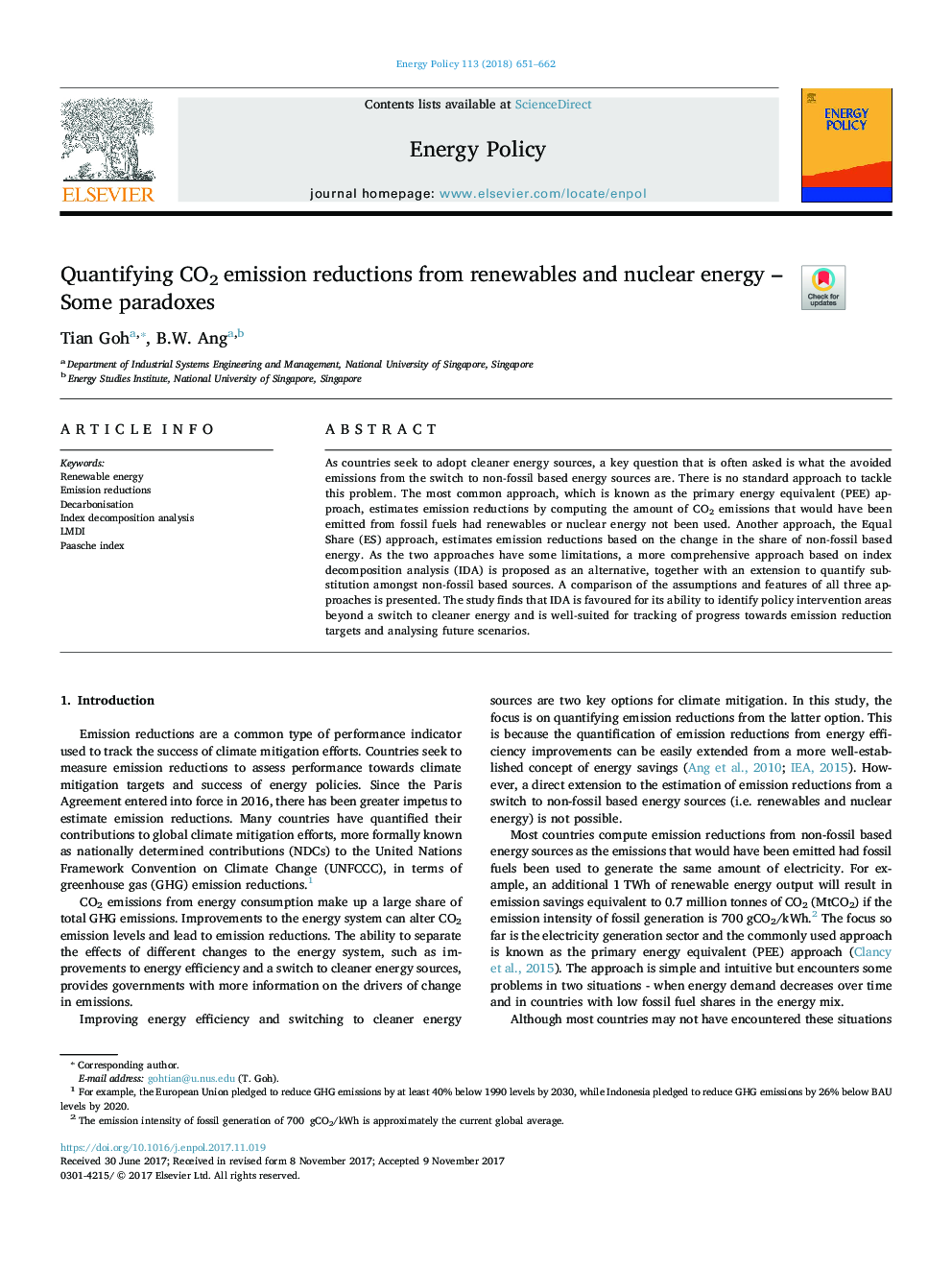| Article ID | Journal | Published Year | Pages | File Type |
|---|---|---|---|---|
| 7398083 | Energy Policy | 2018 | 12 Pages |
Abstract
As countries seek to adopt cleaner energy sources, a key question that is often asked is what the avoided emissions from the switch to non-fossil based energy sources are. There is no standard approach to tackle this problem. The most common approach, which is known as the primary energy equivalent (PEE) approach, estimates emission reductions by computing the amount of CO2 emissions that would have been emitted from fossil fuels had renewables or nuclear energy not been used. Another approach, the Equal Share (ES) approach, estimates emission reductions based on the change in the share of non-fossil based energy. As the two approaches have some limitations, a more comprehensive approach based on index decomposition analysis (IDA) is proposed as an alternative, together with an extension to quantify substitution amongst non-fossil based sources. A comparison of the assumptions and features of all three approaches is presented. The study finds that IDA is favoured for its ability to identify policy intervention areas beyond a switch to cleaner energy and is well-suited for tracking of progress towards emission reduction targets and analysing future scenarios.
Related Topics
Physical Sciences and Engineering
Energy
Energy Engineering and Power Technology
Authors
Tian Goh, B.W. Ang,
